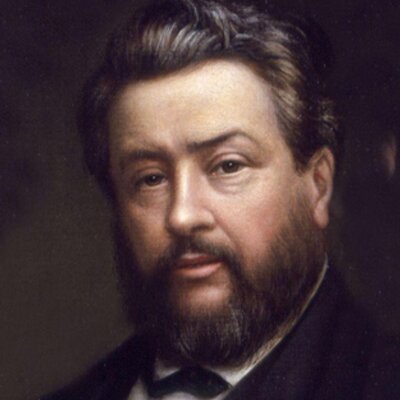
Posted on Aug 8, 2020 by Steven Renner in C.H. Spurgeon |

Doing Good
“Who went about doing good.” Acts 10:38
Few words, but yet an exquisite miniature of the Lord Jesus Christ. There are not many touches, but they are the strokes of a master’s pencil. Of the Saviour and only of the Saviour is it true in the fullest, broadest, and most unqualified sense. “He went about doing good.” From this description it is evident that he did good personally. The evangelists constantly tell us that he touched the leper with his own finger, that he anointed the eyes of the blind, and that in cases where he was asked to speak the word only at a distance, he did not usually comply, but went himself to the sick bed, and there personally wrought the cure. A lesson to us, if we would do good, to do it ourselves. Give alms with your own hand; a kind look, or word, will enhance the value of the gift. Speak to a friend about his soul; your loving appeal will have more influence than a whole library of tracts.
Our Lord’s mode of doing good sets forth his incessant activity! He did not only the good which came close to hand, but he “went about” on his errands of mercy. Throughout the whole land of Judea there was scarcely a village or a hamlet which was not gladdened by the sight of him. How this reproves the creeping, loitering manner, in which many professors serve the Lord. Let us gird up the loins of our mind, and be not weary in well doing. Does not the text imply that Jesus Christ went out of his way to do good? “He went about doing good.” He was never deterred by danger or difficulty. He sought out the objects of his gracious intentions. So must we. If old plans will not answer, we must try new ones, for fresh experiments sometimes achieve more than regular methods. Christ’s perseverance, and the unity of his purpose, are also hinted at, and the practical application of the subject may be summed up in the words, “
He hath left us an example that we should follow in his steps.”
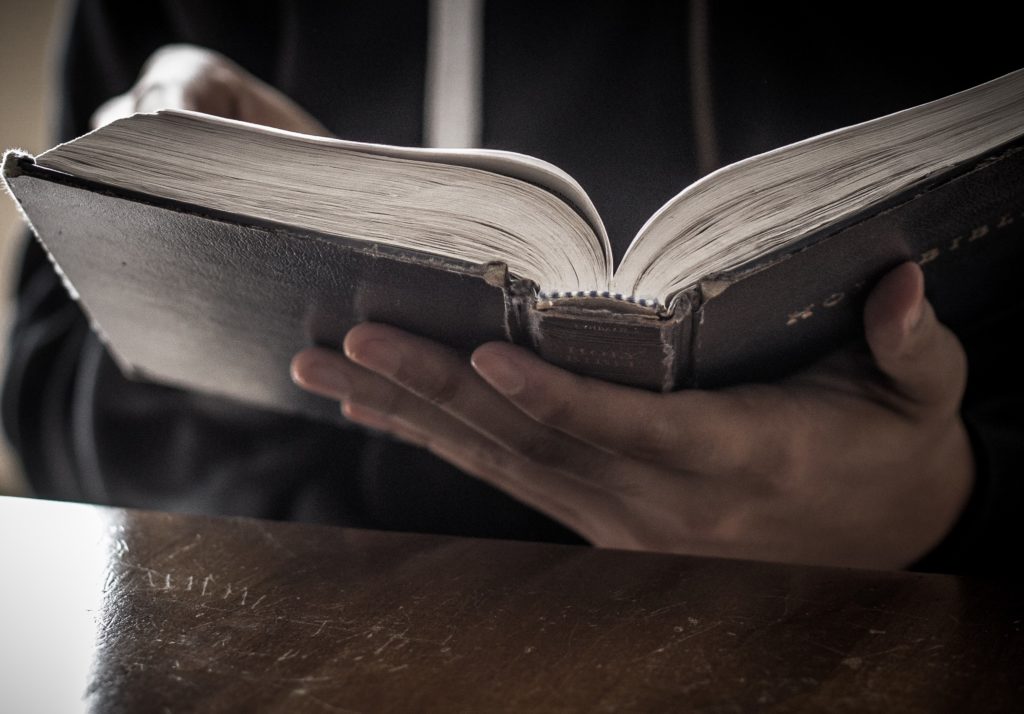
Posted on Aug 7, 2020 by Steven Renner in Devotions, Fear, Trust |

Psalm 56:11, “In God have I put my trust: I will not be afraid what man can do unto me.”
Sir Francis Bacon wrote, “There is a limit to pain, but no limit to fear.” Fear is impatient and does not trust. Fear demands relief now and it wants to be in charge. Scripture assumes that we will be afraid. Therefore, the command God most often repeats is “fear not.” To obey that command one must replace the fear of man with faith in God. Faith is about knowing the Lord Jesus in an intimate, personal way and trusting Him because He is trustworthy. Faith isn’t blind. God has proven, and will continue to prove that you can trust Him. Fear not. Have faith.
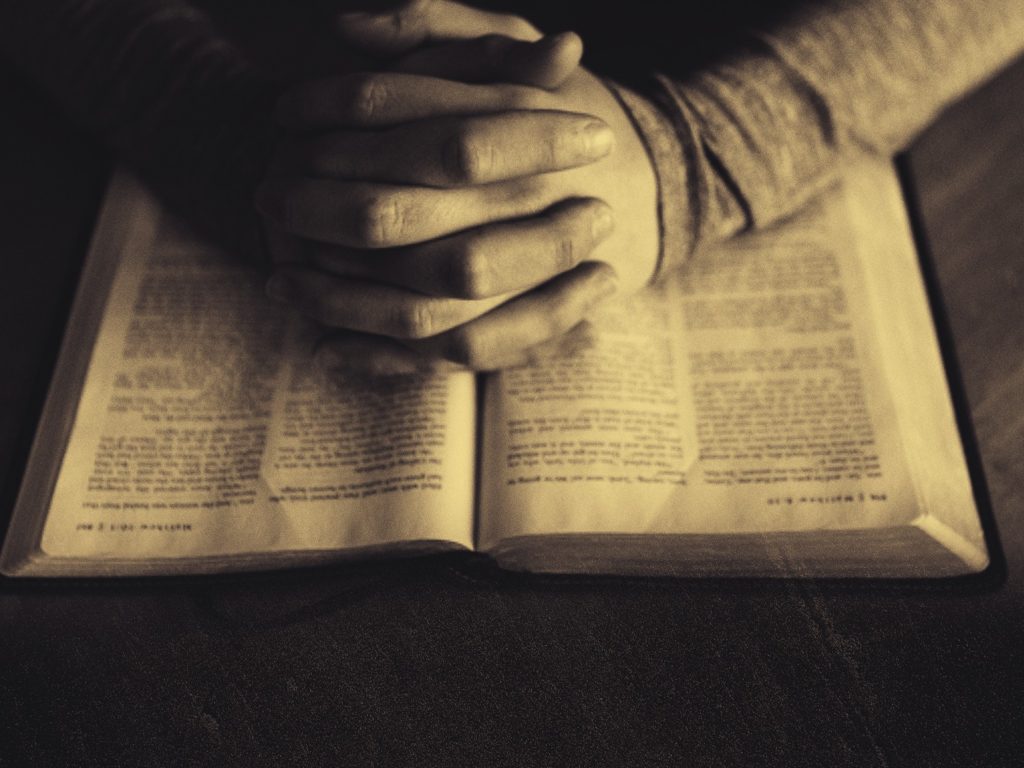
Posted on Aug 6, 2020 by Steven Renner in Devotions |

1 Peter 1:13, “Wherefore gird up the loins of your mind, be sober, and hope to the end for the grace that is to be brought unto you at the revelation of Jesus Christ;”
This verse issues a command to hope fully in God’s grace. The command is augmented by two stir sticks of hope. The first is to “gird up the loins of your mind.” That is a metaphor which sounds odd now, but would not have been in Peter’s day. In that culture, before quick, decisive movements could be made, one must gather up and secure long, flowing garments to reduce the risk of tripping and falling. The second stir stick of hope is mental and spiritual sobriety. Do not allow stuff into your mind (and heart) that will numb you to the value of God’s grace. Brace yourself in the truth of scripture. Guard your hope by the grace of God
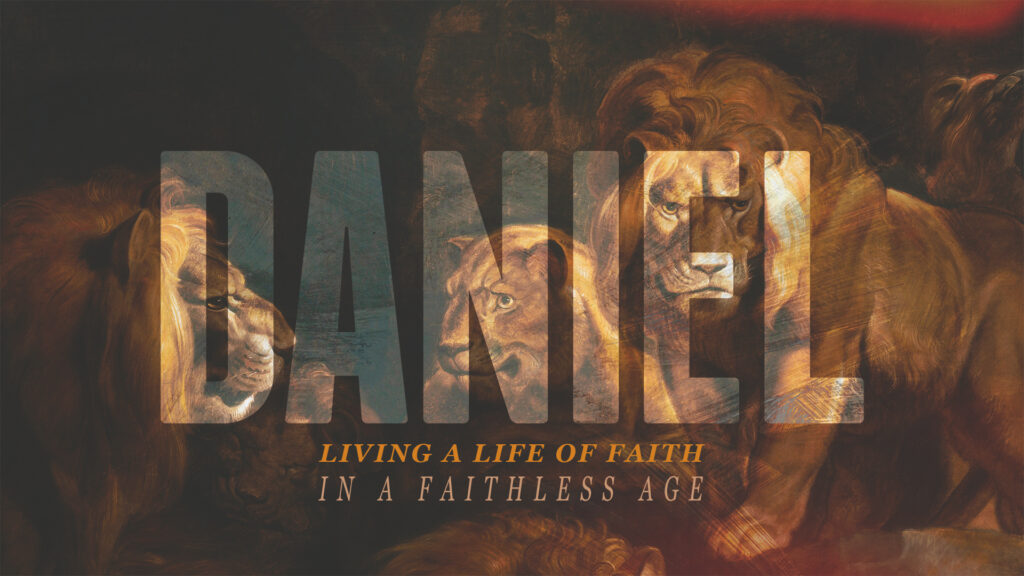
Posted on Aug 5, 2020 by Steven Renner in Church Services, Daniel, Livestream, Prophecy |

Except for Jesus Himself, there are no better examples of commitment despite difficult circumstances that Daniel, Hananiah, Mishael, and Azariah. Their story of faithfulness in a faithless age is told in Daniel one through six. That is where we find those famous passages of the fiery furnace, the writing on the wall, and the lion’s den.
Daniel 7-12 is mostly prophecy, and nearly all of it was future prophecy when Daniel first received his visions. While much of what he saw has been fulfilled, some is still on front of us. God gave Daniel a glimpse of where history is headed. All things are headed to an appointed end, and everything is on schedule. The history that unfolded before Daniel’s eyes while in the spirit, on the banks of the Ulai River in the city of Shushan, made him physically ill. By the end of chapter eight, Daniel is one sick prophet.
That’s because he saw three men, represented by three horns: a large horn, followed by a little horn, and then the last horn. The first two dictators were historical previews of the final false messiah, a man whose evil behavior is greater even than any before him. Now this is a good spot to be reminded that many prophecies in Scripture have dual characteristics to them. That is an immediate and an ultimate fulfillment. That is the case in Daniel eight. While all three of these men were in the future when Daniel received his vision. As far as we are concerned, the first two have come and gone long ago. The last one is yet to be revealed.
One Sick Prophet
Why would God give Daniel a vision so terrible that it made him physically sick? I think there are at least three reasons:
- Prepare them for persecution. Things will get worse before they get better.
- Warning not to panic. Don’t be confused by historical trends. History is happening according to God’s design.
- The Kingdom is coming! The Ancient of Days will deliver the Kingdom to the real Messiah, and all false messiahs will be finally and utterly put down and out forever.
Tonight we finish our study of Daniel 8. There is much to learn from the vision that made Daniel sick. Be tuned in tonight at 7pm on Facebook Live to follow along. Remember, a Facebook account is not required to view a live-streamed video on the church’s Facebook page. Click this link to be directed there.

Posted on Aug 4, 2020 by Steven Renner in Devotions |

Romans 12:1, “I beseech you therefore, brethren, by the mercies of God, that ye present your bodies a living sacrifice, holy, acceptable unto God, which is your reasonable service.”
One critical decision often determines whether a company thrives or flounders. That was Malcolm Gladwell’s observation in The Tipping Point. That book was not targeted to believers, but the principle applies to them. Are you at a tipping point? Faced with a difficult decision or a serious situation? There is only way to thrive rather than flounder. Trust God. This means obey His Word. That requires sacrificing your agenda for His greater purposes. This will always work out for your good and His glory. Surrendering to God is resisting the devil. That is the tipping point to victory, both now and for eternity.
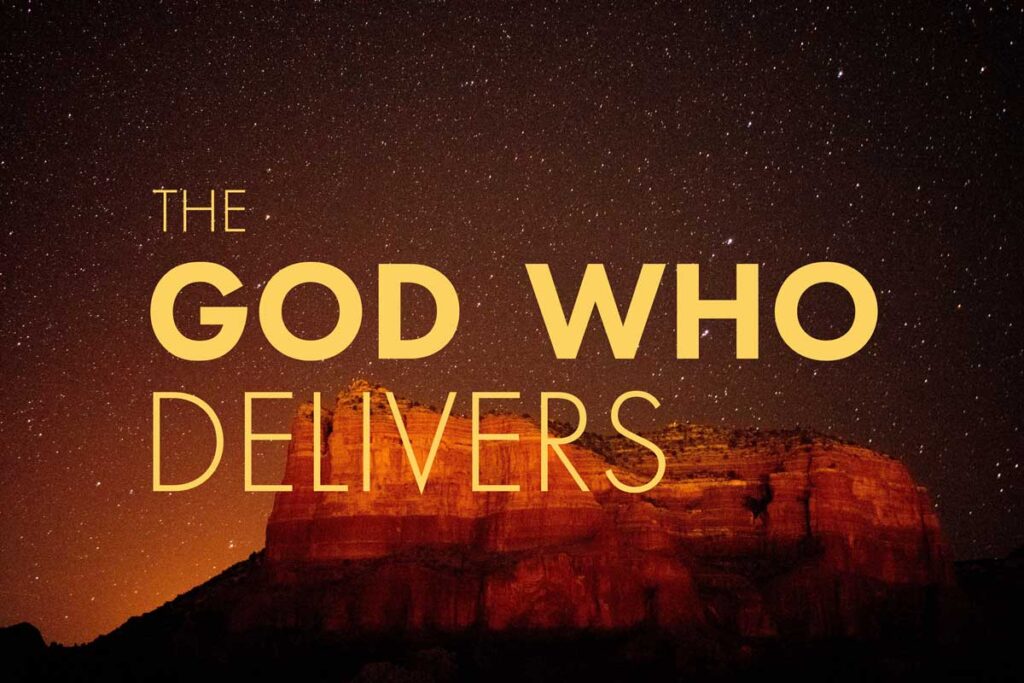
Posted on Aug 3, 2020 by Steven Renner in Devotions, Jesus Christ |

Matthew 27:43, “He trusted in God; let him deliver him now, if he will have him: for he said, I am the Son of God.”
Here are true words ignorantly and cruelly spoken. Jesus did trust God the Father, and He was beloved of the Father. Jesus claimed to be, and indeed is, God the Son. These scorners unwittingly fulfilled Psalm 22:8, and their behavior reinforces the hard truth that, on this side of glory, following God’s will does not always lead to ease and comfort. But we do not exist just for this world. God the Father has, does, and will deliver those who trust Him. Three days after He was mocked on the cross and buried in a borrowed tomb, Jesus was raised from the dead! Follow in His steps and be likewise victorious. Just remember that victory does not mean ease and comfort right now. Not all of the time. But deliverance is coming. It will be eternal. Trust in that.
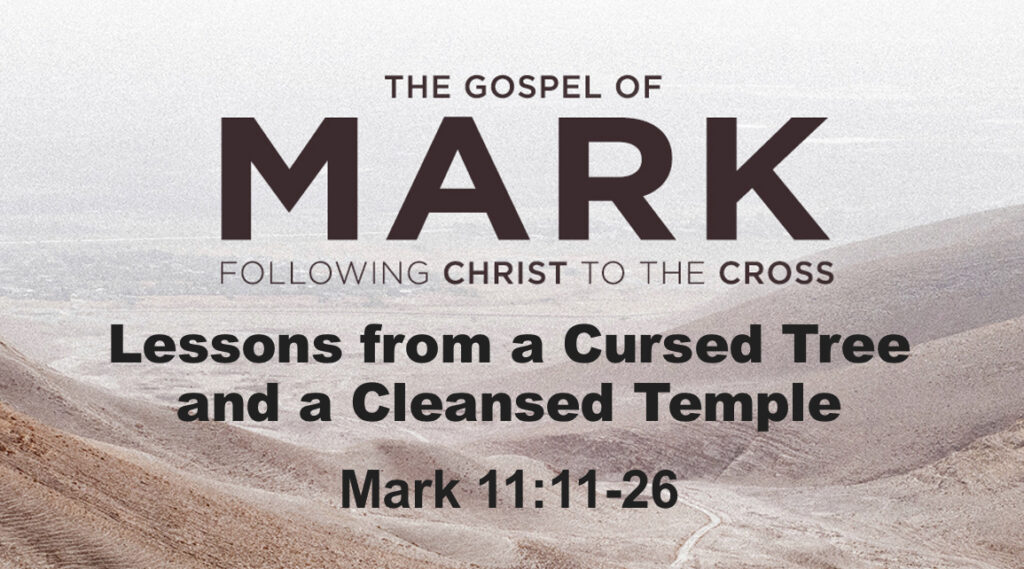
Posted on Aug 2, 2020 by Steven Renner in Church Services, Mark's Gospel |

This morning at 11am we will be in
Mark 11:11-26. The King had entered Jerusalem. Without doubt, His procession was the lowliest and meekest of any monarch in history, but the timing and the manner of His coming were according to the Divine plan. We must not confuse the meekness of Christ with weakness. Jesus was the master, not only of Himself but of every situation. Today’s text reveals His awesome authority and His burning zeal for the things of God.
Christ’s cursing the fig tree and cleansing the Temple are well known events. They also may seem confusing or even contradictory. We will allow the text to teach us important truths from a cursed tree and a cleansed Temple. Be tuned in at 11am on
Facebook or through this website.
We will not be have in-person services again until Wednesday, August 12.

Posted on Jul 31, 2020 by Steven Renner in Devotions, Trust |

Jeremiah 17:5, “Thus saith the LORD; Cursed be the man that trusteth in man, and maketh flesh his arm, and whose heart departeth from the LORD.”
The background of this verse is Judah’s seeking the help of Egypt against Babylon. Judah’s leaders trusted their political allies and military strength instead of trusting in the power of God. To emphasize the difference, a barren bush in the desert is contrasted with a fruitful tree by the water (see v. 6; c.f. Psalm 1:3-4). Unbelief turns life into a dry wasteland. Trusting God regardless of the situation or the circumstances is what makes life a fruitful orchard. Fear of man and lack of trust in God always leads to ruin. The beginning of wisdom is the fear of the Lord, and faith is the victory that overcomes the world.

Posted on Jul 30, 2020 by Steven Renner in Devotions, God's Promises |

Isaiah 26:4, “Trust ye in the LORD for ever: for in the LORD JEHOVAH is everlasting strength:”
Three times in a verse of fifteen words God uses His personal, self-revealing name YHWH. Jehovah is the God who frequently reveals Himself to us through difficult circumstances. Often God will allow us to hit rock bottom in order for us to better understand and experience His ‘everlasting strength,’ which in Hebrew is literally ‘Rock of Ages.’ Jesus Christ is that Rock in a world of sinking sand. Don’t allow the tyranny of today’s tasks to turn you away from trusting in the personal, unchanging, self-existent, self-sufficient Rock of Ages. Perfect peace is there for those who trust Him, regardless of the outlook, and all the way to the end. Since His strength is everlasting, our trust should be, too.

Posted on Jul 29, 2020 by Steven Renner in Daniel, Prophecy |

In our walk through Daniel we have noted that the first six chapters are mostly history with a little prophecy, while the second six chapters are mostly prophecy with a little bit of history. God has revealed to us through the dreams and visions of Nebuchadnezzar and Daniel, truth about the temporary kingdoms of men and the coming eternal kingdom of Christ. In
Daniel two and
seven we were given a sweeping look of four mighty and culture shaping kingdoms: Babylon, Media-Persia, Greece, and Rome. In
Daniel 8, the focus is tightened on the kingdoms which would play a crucial role in the history of Israel and the life of the Jews, the empires of Media-Persia and Greece. Unfolding within this drama are three notable characters. We will describe them as the large horn, the little horn, and the last horn. In Daniel’s day, all three of these men were future figures. In our day, only the last one is.
We will be in Daniel eight for at least two weeks. Please be tuned in at 7pm.




















